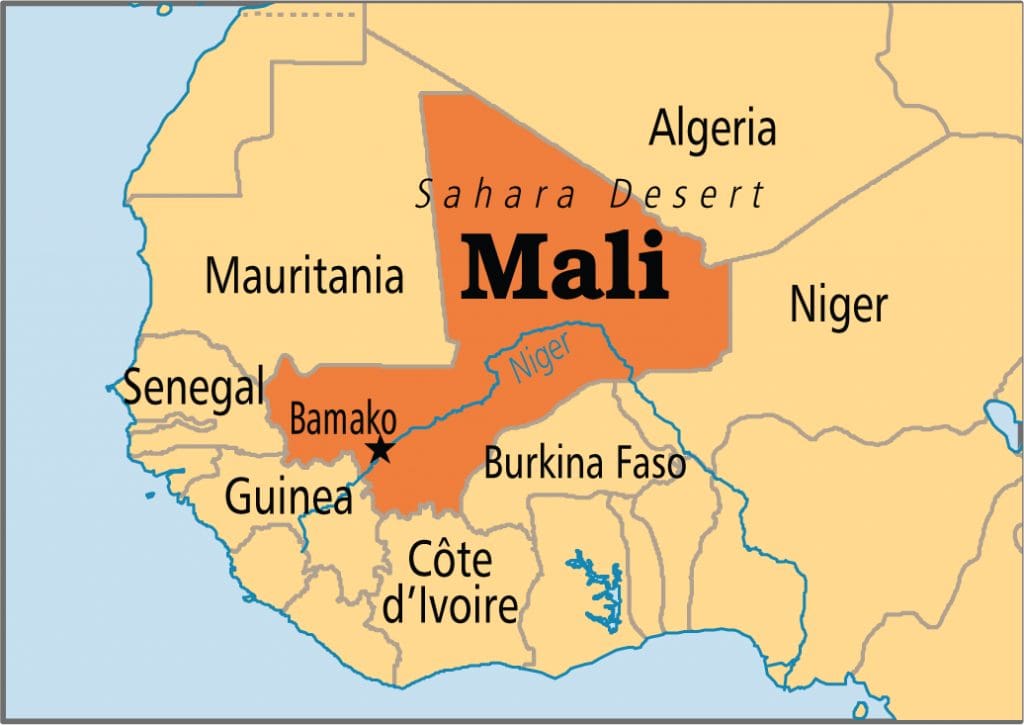Malian political opponent Soumaïla Cissé and French humanitarian Sophie Pétronin have been freed from the hands of jihadists.
More than six months of captivity for the one, four years for the other. Former Malian Minister Soumaïla Cissé and French humanitarian Sophie Pétronin, who were detained by jihadists in northern Mali, were released this Thursday, October 8, 2020 in Tessalit, in the region of Kidal, northern Mali.
The two hostages were held by the JNIM, the Arabic acronym for the Support Group for Islam and Muslims, linked to al-Qaeda and led by the Malian Iyad Ag Ghali, a former Tuareg rebel leader in the 1990s who was for a time advisor to the presidency in Bamako before converting to jihadism.
They are expected to arrive in Bamako in the evening with two Italians, Nicola Chiacchio and Pier Luigi Maccalli, a priest abducted in Niger in 2018. The latter were also detained by Islamists.
The release of the Malian politician and the French humanitarian had been awaited for several days, following an agreement reached several weeks ago between the Malian authorities and the jihadists of the Support Group for Islam and Muslims (GSIM).
Their release was scheduled for Monday after the transport over the weekend by Bamako to Tessalit of several dozen jihadist detainees or alleged jihadists.
According to some sources, this release is expected to be accompanied by a large ransom. But the process seemed to have stalled in the meantime. Detainees placed at the top of the list and demanded by the jihadists finally never left Bamako.
Among them was Mimi Ould Bana Ould Cheikh, son of the mayor of Tarkint in the Gao region. He is believed to be the mastermind of an attack on a tourist complex in Grand-Bassam, Cote d’Ivoire and the Splendid Hotel in Ouagadougou, Burkina Faso.
The death of an American evangelist residing in Ouagadougou in the latter attack earned Baba Ould Cheikh’s son a U.S. judicial search and conviction in absentia.
According to Malian sources, pressure from the U.S. government eventually prevented his release and thus delayed the release of the hostages.
By way of compensation for the jihadists faced with the impossible release of one of their own, an increase in the initial amount of the ransom would have been, according to certain confidences, granted to reach the sum of one billion 650 million CFA francs, or €2.5 million.
Initiated by Bamako in the aftermath of the kidnapping of the opposition leader, then in the midst of the campaign for the legislative elections last March, the negotiations initially focused on his case alone.
Until July, no significant progress was made. It was with the entry of a new team of negotiators that there was a breakthrough. At its head, he is a regular at this kind of mission. Ahmada Ag Bibi, who in the past had already succeeded in freeing several dozen Western hostages from the hands of various Islamist groups in northern Mali.
This former Tuareg rebel, from the powerful Ifoghas tribe, was until the August 18 coup against President Ibrahim Boubacar Keïta (IBK) an influential member of the outgoing parliamentary majority.
He very quickly managed to reach an agreement in principle with the Islamists on the liberation of his compatriot. All that remained was to agree on the modalities of his execution. It was then that the Malian authorities had the idea of trying to obtain the release of the humanitarian from Bordeaux.
After an initial refusal, the jihadists finally agreed to release her by demanding the addition of several dozen names to their list of prisoners to be released from Malian prisons. In total, there would be more than 200 detainees linked to jihadist groups who would have been released from Bamako, but also from neighboring Niger.
LOS/id/cgd/lb/abj/APA


